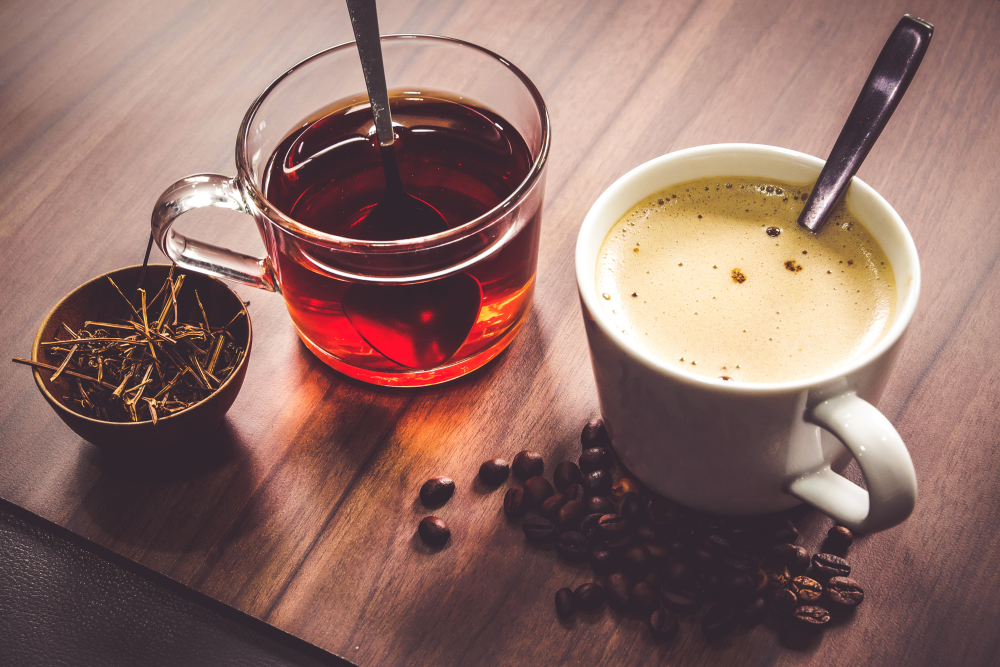There’s nothing like a cup of hot brown water to start your day. For some it’s the taste, while others seek the energy boost, but does tea or coffee have more caffeine?
The answer changes depending on how you do your brew, so let’s dive into it.
How much caffeine does tea have?
Tea is the warming beverage you get from pouring boiling water over fresh or dry leaves from the Camellia sinensis plant. There are over a thousand types of tea but they mostly fall into the categories of green, black, white, and oolong.
A 2008 study that brewed 20 commercial tea products found that the caffeine content across the varieties ranged from 14 to 61 milligrams per serving. There was no particular association between strength and tea type, but steeping time did have a big influence on caffeine concentration.
How much caffeine does coffee have?
The caffeine content of coffee varies depending on the size and type of your drink. If you’re knocking back double espressos, you can be looking at 60 to 100 milligrams of caffeine, while the average cup ranges from 65 to 120 milligrams, according to the University of Washington.
What even is caffeine?
We get tired as the day goes on because of a molecule called adenosine that our brains produce more and more of from morning through tonight. As a stimulant, caffeine hijacks this natural process by mimicking adenosine in the brain, latching onto its receptors and pushing them out of the way. The resulting symptom is that we feel less tired.

The caffeine content of tea leaves and coffee beans is very different to the caffeine content of tea and coffee.
Image credit: YaiSirichai / Shutterstock.com
Does tea or coffee have more caffeine?
You may have heard that tea has more caffeine than coffee, but this is rarely the case when it comes to the actual beverages. If you look at the caffeine content of each drinks’ raw ingredients, then tea leaves come out on top, with a caffeine content of 3.5 percent compared to just 1.1–2.2 percent in coffee beans, explains a 2009 study.
Tea is created when particles move from an area of high concentration (the tea bag) to a low concentration (the hot water), and it’s an example of diffusion. The end product is, therefore, a very diluted version of the raw products. This is why despite being stronger than coffee beans, tea typically winds up being a comparatively less caffeinated drink.
The wizardry of baristas is actually a kind of science, because they create just the right size and shape of coffee grinds so that the flow of hot water can extract the sour coffee flavour and balance it out with the bitterness of caffeine. As physicist and nanotechnologist Dr David Hoxley told La Trobe University, too fine equals a strongly caffeinated bitter drink, while too big results in a sour-tasting coffee with a weak caffeine kick.
How that extraction happens is why you get different kinds, like filter vs. espresso – the latter of which is pulled from finely ground coffee beans using pressurized hot water to create that oily energy boost we humans just can’t get enough of.
Starting the day with a morning brew has become a widespread culture, but did you know that the science suggests that you shouldn’t drink coffee first thing in the morning?
Source Link: Does Tea Or Coffee Have More Caffeine?